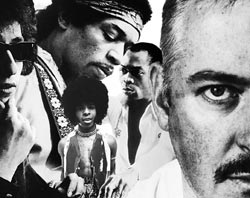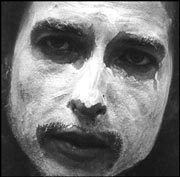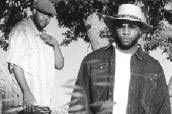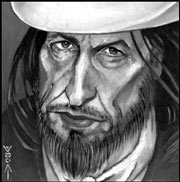All professions, American economist Thorstein Veblen once observed, are a conspiracy against the laity. In few settings is this more evident than on the professional conference circuit—those three- and four-day gatherings at which experts and apprentices assemble in far-flung cities to present research, deliver papers, swap cutting-edge information, run up astronomical bar tabs, and generally annoy the hell out of the hotel staff.
Trust me on this: As a college professor and a paid-up member of the Modern Languages Association, I can attest that it takes no more than a handful of panels with titles like “Competing Paradigms for Computing in the Humanities,” “Recent Reinventions of Raymond Chandler,” and “Commercial Lexicography in the 21st Century” to make the eyeballs fibrillate, the back stiffen, and the throat cry out for half-price domestic drafts at the nearest hotel bar.
Suffice it to say, a little of this heady inquiry goes a long way—which is one of the reasons that professional conferences, notoriously plodding in the daylight hours, tend to mutate into marathon pub crawls as soon as the last afternoon session lets out.
All of which brings us to a plainly deranged young man named Eric Weisbard, former writer for publications such as Spin and The Village Voice, who arrived at the Experience Music Project 18 months ago to do something nobody in all of recorded history ever had: organize a giddily democratic, thoroughly professional conference. On American pop music, no less.
THE FIRST POP Music Studies Conference, hosted by the EMP in April 2002, was a fairly modest two-day affair. This year’s model, which convenes April 10, runs four days and features almost twice as many conferees.
The loose theme, in case you’re keeping score at home, is “Skip a Beat: Rewriting the Story of Popular Music.”
While somewhat larger in scope, the concept behind the 2003 conference remains true to the 37-year-old Weisbard’s original vision. The event is a pastiche of hard-core scholarly work and creative performance, panel discussions, and free-form special events. (For a full schedule and an annotated list of presenters and panels, see the conference’s official Web site at emplive.com/visit/education/ popconf.asp.)
“When I first arrived [at EMP], there were plans in the works to design a more academic-type conference, but there were already enough of those in the world,” says Weisbard. “It would be a far more singular thing, I thought, to try to do a conference that would be open to journalists, musicians, and nonacademic writers as well. And to treat no group with tokenism but look to find ways to bring them into conversation.”
It’s this strategy—the bringing together of people with common passions and interests but whose professional milieus would never otherwise overlap—that sets the Pop Music Studies Conference apart from similar but overwhelmingly academic gatherings such as the American Pop Culture Association Conference. That strategy manifests itself most visibly in the shaggy-dog panels that sit freelance journalists beside grad students, working musicians beside salaried critics. But the carefully organized give-and-take impacts on the administration of the conference as well.
“When you’re sitting in a room with the program coordinators and selecting proposals, you can already see it happening,” Weisbard says. “Here’s Greil Marcus and Robert Christgau, two very prominent professional critics, going over abstracts with Robert Walser, a musicologist at UCLA, and Steve Waksman, who does American Studies at Smith College. And you get into this thing where you have to say to the academics, ‘No, no, it’s perfectly OK for Tim Midgett of Silkworm to do a presentation on “The Taxonomy of Sludge” with Tom Kipp. And it’ll be fun!'”
But a cultural conference that scoffed at academics would be an intellectually meager gathering indeed—these are the people who, after all, pretty much invented the pro conference in its modern form—and, truth be told, such an event probably couldn’t sustain itself for four days. By burning both ends of this particular candle, Weisbard has managed to balance scholarly inquiry with a vastly informed breed of ardent fandom.
“What you see here is a cross section of people who have one foot in academia and one foot in the world of culture, whether they’re musicians or journalists or filmmakers—people for whom what’s interesting about popular music is that it crosses boundaries and who, in their own work, are trying to accomplish the same thing. Ultimately, I think the model for this conference isn’t just interdisciplinary; it’s extra-disciplinary, maybe even anti-disciplinary.”
THOUGH WEISBARD’S combination of personal recruitment and shrewd placement of the call for papers has brought together presenters from many fields, a quick glance through the conference’s program can be daunting, especially for the nonacademics Weisbard clearly hopes to court. The torturously verbose paper title, a staple of cultural studies conferences, is in full effect even at such a “maverick” gathering as this (“Bruce’s Butt: Masculinity, Patriotism, and Rock’s Ecstatic Body” and “You Ain’t Just Whistlin’ Dixie: The Preservation of ‘Whiteness’ and Racism in ‘Celtic Confederate’ Music” are two fairly representative examples).
But closer examination—presenter bios and abstracts for all papers are available online—happily reveals a playful spirit to the majority of presentations.
“In most cases, the people this conference attracts aren’t dry presenters,” Weisbard says. “They’re funny and engaged and entertaining. In fact, one of the complaints we got about last year’s conference was that there wasn’t enough down time. We’ve added time between panels this year to relieve some of the hyperventilating. But that pace, to me, is part of the enjoyment. The fact that I can have one person talking about Bobbie Gentry, another person talking about Korean hip-hop, and a third person talking about the history of pop music as seen through the prism of RadioShack—that’s great fun.”
For a conference of its size, and certainly for one so young, it’s fair to say that Weisbard’s brainchild is already an unmitigated success, in terms of both its drawing power and the credentials of its participants—most of whom already boast impressive r鳵m鳠in their respective fields.
“There are wonderful people, people of substance from all disciplines, coming together here. And we’re trying to bring them and their work to each other’s attention. But in essence, in the larger sense, we’re trying to answer the question, ‘What is pop music about?’ and answer it somewhere between idle speculation and committed research,” observes Weisbard. “The stakes, I think, are the same stakes you bring to popular music as a listener: You want to find literacy in unexpected places. You want to find noise battling your sense of gentility. And you want to find a clash of cultures that adds up to this beast, whose nature you couldn’t have predicted in advance.”








